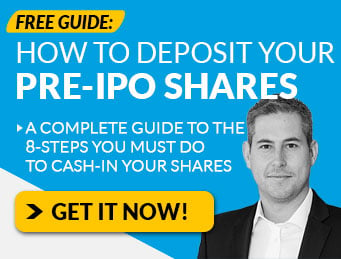While your newsfeed is cluttered with opinions about the regularly scheduled debt ceiling shakedown on Capitol Hill…
In today’s Weekend Edition, we’re going to be talking about some stories you haven’t heard:
- Real estate beats 10-year average in 2022 and significantly outperformed PE/VC in Q4-2022
- Private Equity Firms are gearing up to take advantage of a “bankruptcy boom” with “Special Situation Funds”
- SEC adopted amendments to Form PF, requiring more disclosure from large hedge fund advisers and all private equity fund advisers.
Let’s dive in,
-Equifund Publishing
Scoreboard
Private Capital Returns Q4-2022
In case you’ve never heard of Pitchbook, the Seattle company is one of the “go to” resources for data on the global capital markets.
According to the report, “Private equity and venture capital funds are generating lower returns on their investments with both strategies lagging far behind their 10-year averages on performance.”

While the returns of every private capital strategy were well above historical levels throughout 2021, recently, these strategies performed worse than the commonly used public equities indexes for benchmarks.
However, real assets and real estate funds more than pulled their weight, delivering investor returns well above 10-year averages.
For a more detailed look at the Private Capital Scoreboard, we turn to the IRR comparisons by vintage year.

From 2010-2020, Private Equity (Buyout and Growth Expansion) and Venture Capital have been the top-performing asset classes within the Private Capital ecosystem.
However, as the legal disclaimer goes, “past performance does not predict future returns.”
And if you’ve been following the headlines about the complete disaster that has been venture-backed IPOs…
A Crunchbase analysis of the 20 largest public market debuts of venture-backed U.S. companies, founded in the past 15 years, reveals that only three are trading above their initial offering prices. And even those three — Airbnb, Pinterest and Snowflake — are still well below where their shares closed in first-day trading.
Scoreboard says: OUCH!

Will PE/VC return to its former glory and lead the Private Capital asset classes?
Or will we see a rotation into Private Real Estate (Value add and Opportunistic), as we wait for the animal spirits to return to the markets?
Players
Private Equity Responds with Special Situation Funds
In the last Weekend Edition, we talked about Blackstone’s global real estate fund, Blackstone Real Estate Partners X fund, the largest private equity drawdown fund ever.
Anticipating changing macrotrends, Blackstone Real Estate shifted its portfolio away from assets facing headwinds, such as traditional office and malls, and is now approximately 80% concentrated in logistics, rental housing, hospitality, lab office, and data centers.
In other words, there is a “Special Situation” that calls for a new strategy.
“A special situation in finance is an atypical event which has the high potential to alter the future course of a business, materially impacting the company’s value. The connotation of the event may be both positive (for example, merger or acquisition) and negative (conflict, distress, etc.)
The notion also covers corporate restructuring and corporate transactions, such as spin-offs, share repurchases, security issuance/repurchase, asset sales, or other catalyst-oriented situations.
Further, a shareholders conflict is also considered a special situation.”
In his well-known book Security Analysis, Benjamin Graham divides special situations into six classes:
- Class A: Standard arbitrages, based on a reorganization, recapitalization or merger plan
- Class B: Cash payout, in recapitalization or mergers
- Class C: Cash payments on sale or liquidation
- Class D: Litigated matters
- Class E: Public utility breakups
- Class F: Miscellaneous special situations
In the way that VCs are all seeming to pivot into AI, Private Equity is showing early signs of pivoting into “Special Situations,” to capitalize on the “most predicted recession of all time” narrative that continues to pick up steam.
Private equity firm Bain Capital is reportedly halfway toward its goal of raising $4B for a new global special situations fund. The fund will focus on corporate equity, distressed assets, loans, corporate investments, and real estate.
Fabio Longo, head of Bain’s Special Situations European Division, said that Bain expects interest rates to stay “higher for longer,” creating opportunities for distressed and special situations investing.
Credit manager Diameter Capital Partners has closed its second private debt fund at more than $2bn, a near-three times increase on the size of its previous fund.
Rule Changes
Private Equity Gets Squeezed by New Regulations
Even though PE seems poised to be the big winner of the current capital markets cycle…
The industry faces its biggest threat yet, as regulators step in and demand better investor protections, and public opinion seems to be turning against it.
On the regulatory side…
Not only is the Department of Justice and Federal Trade Commission taking a tougher approach to anti-competitive mergers…
On May 3, 2023, the SEC adopted amendments to Form PF, requiring large hedge fund advisers – and all private equity fund advisers – to file current reports upon the occurrence of “certain reporting events that could indicate significant stress at a fund or investor harm.”
On the public opinion side…
One study found private equity control can kill you. Two new books argue that the private equity industry is not only killing you, but these firms are also ruining your local businesses, by saddling them with debt, harvesting their assets, and pushing them to bankruptcy.
While it seems like the Private Equity industry could be getting squeezed between the forces of rising interest rates, tougher regulations, and public outcry…
It’s anyone’s guess if anything will really change in the now very powerful private equity industry.
But here at Equifund, we’re hopeful the current “Special Situation” could lead to increased transparency in the private markets, with broader access for retail investors.





